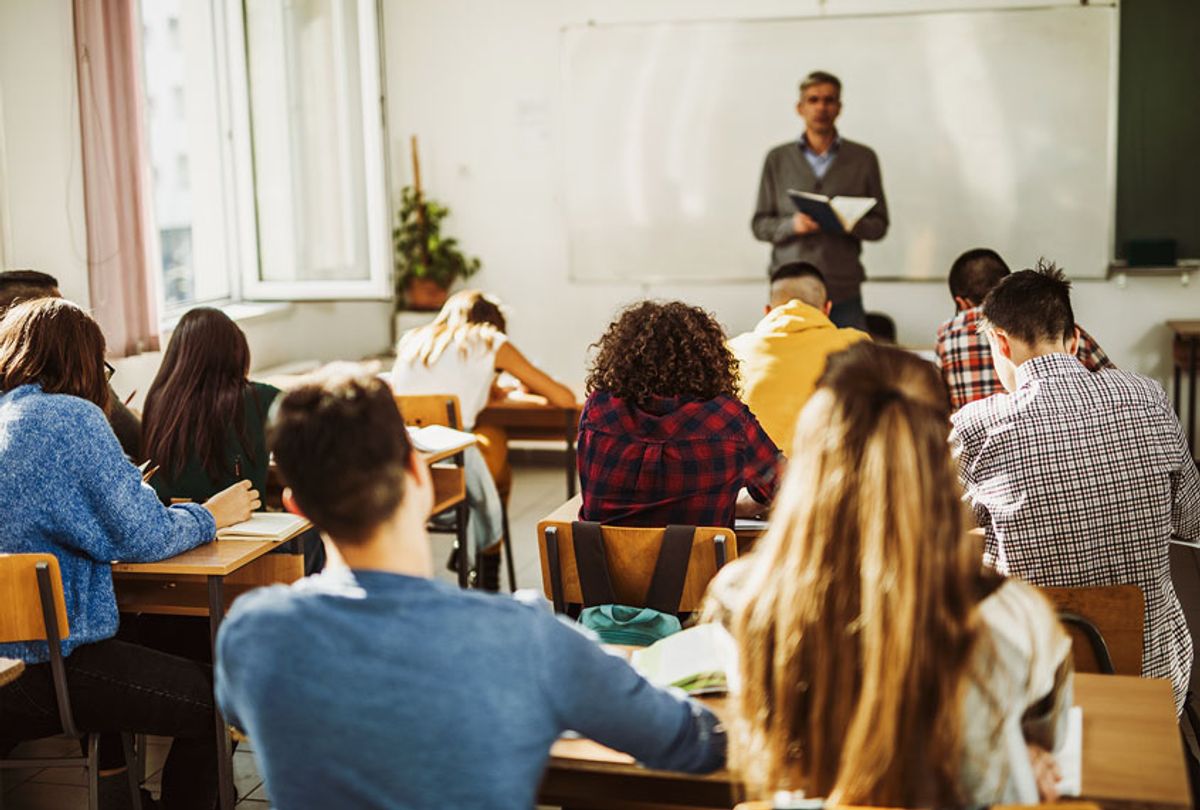Expert Primary Science Tuition Singapore for Understanding Complex Concepts
Expert Primary Science Tuition Singapore for Understanding Complex Concepts
Blog Article
Discover the Important Benefits of Understanding Primary Scientific Research for Young Students
The importance of key scientific research education and learning for young students extends much past plain knowledge acquisition; it offers as a basic pillar in creating crucial skills such as crucial reasoning, analytic, and creative thinking. Involving with clinical ideas through inquiry-based and interactive activities not just grows curiosity yet additionally lays the foundation for resistant, confident learners.
Enhancing Essential Believing Abilities
Cultivating important thinking abilities in young students is crucial for their cognitive development and future academic success. Important thinking makes it possible for children to analyze information, examine proof, and make informed choices, which are crucial skills in today's information-rich culture. By participating in scientific query, young learners can boost these abilities as they explore concepts through monitoring, testing, and reasoning.
In primary science education, teachers can help with essential thinking by encouraging students to ask concerns, create hypotheses, and carry out experiments. This hands-on approach permits children to exercise analytic and establish sensible reasoning abilities. As an example, when pupils check out the residential properties of materials or the principles of movement, they find out to examine their searchings for seriously and reason based upon proof.
Furthermore, conversations and collaborative projects can advertise important thinking by offering chances for learners to verbalize their ideas, difficulty assumptions, and take into consideration varied point of views. By developing an encouraging setting that values query and reflection, teachers can support important assuming abilities that encourage young learners to come to be independent thinkers and long-lasting learners. Eventually, boosting these skills lays a robust foundation for their future scholastic undertakings and individual growth.
Cultivating Inquisitiveness and Expedition

Primary scientific research education and learning supplies an organized setting where young students can discover various phenomena via hands-on experiments and observations. By allowing them to communicate with materials and involve in inquiry-based knowing, instructors produce chances for kids to formulate theories, check their ideas, and reason. Such experiences support a feeling of wonder and excitement concerning science.

Building Confidence in Trouble Resolving
Building self-confidence in analytic is a critical part of key scientific research education that encourages young students to approach difficulties with strength and creativity - primary science tuition Singapore. When kids are motivated to engage with scientific principles with hands-on tasks and inquiry-based knowing, they create important skills in vital reasoning and evaluation. This process not only improves their understanding of clinical concepts yet also fosters a sense of possession over their discovering
To build confidence, instructors should develop a helpful setting where mistakes are watched as opportunities for development rather than failings. This motivates students to take dangers and discover different options to issues. By supplying scaffolding and support, teachers can aid trainees navigate complicated tasks, slowly enhancing their freedom in analytical scenarios.
Moreover, collective learning experiences, such as group tasks or experiments, can even more boost trainees' self-confidence as they discover to articulate their thoughts and pay attention to others' point of views. These interactions nurture social skills and reinforce the idea that analytic is frequently a collective endeavor. Inevitably, cultivating confidence in problem-solving prepares young students for future scholastic difficulties and outfits them with the tools needed for long-lasting discovering.
Encouraging Creative Thinking and Development
In the realm of key scientific research education and learning, encouraging creativity and innovation is essential for cultivating a dynamic discovering atmosphere. By cultivating a society where read here young students can check out ideas and experiment freely, teachers assist students develop crucial believing skills and an enthusiasm for discovery. Creativity in science encourages youngsters to ask questions, create hypotheses, and involve in hands-on tasks that stimulate their creative imagination.
Incorporating open-ended tasks and inquiry-based learning right into the curriculum enables students to reveal their distinct point of views and remedies. For example, when charged with solving a problem pertaining to their atmosphere, pupils can conceptualize numerous techniques, leading to innovative results that display their originality. This not only strengthens their understanding of scientific concepts however also instills a sense of possession over their knowing process.
Furthermore, innovative scientific research education and learning supports collaboration among peers, as trainees typically share concepts and develop on one an additional's understandings - primary science tuition Singapore. This collaborative spirit promotes not just development yet likewise essential social abilities. Thus, by focusing on imagination and advancement in key scientific research education, we encourage young learners to assume critically, welcome challenges, and picture possibilities, laying a solid foundation for long-lasting discovering and exploration
Getting Ready For Future Knowing Obstacles
Young learners' capacity to navigate future knowing difficulties rests on a solid foundation in main science education and learning. This fundamental understanding equips students with critical thinking abilities and a systematic approach to problem-solving, important for taking on intricate issues in an ever-evolving globe. Main science fosters inquiry-based discovering, urging students to ask questions, check out hypotheses, and participate in hands-on experiments.
As they develop these abilities, students come to be skilled at examining information, recognizing patterns, and attracting informed conclusions. Such proficiencies are crucial not only in scientific areas yet also in modern technology, design, and math (STEM), where interdisciplinary knowledge is increasingly critical.
In addition, main science education and learning grows a sense of curiosity and strength in young learners, enabling them to check out challenges as opportunities for growth. As they run into and get over challenges in their scientific explorations, they develop self-confidence in their capability to adjust and introduce.
Ultimately, a strong structure in main science not just prepares young learners for scholastic her comment is here searches but also outfits them with the tools essential for lifelong learning and flexibility in a rapidly transforming international landscape. By purchasing main scientific research education and learning, we are purchasing the future capacity of our learners.
Conclusion
Comprehending main scientific research websites is critical for young learners, as it promotes vital thinking, inquisitiveness, and imagination. Eventually, the advantages of main scientific research education prepare children for future academic quests and instill lifelong knowing habits vital for flourishing in an ever-evolving globe.
The value of key scientific research education for young students prolongs far beyond plain expertise procurement; it offers as a fundamental column in developing crucial skills such as important thinking, problem-solving, and imagination. By creating a helpful environment that values inquiry and representation, instructors can support critical thinking abilities that empower young students to become independent thinkers and lifelong students. Thus, by focusing on creative thinking and technology in primary scientific research education and learning, we equip young students to believe seriously, accept obstacles, and imagine opportunities, laying a strong foundation for long-lasting knowing and expedition.
Young learners' ability to navigate future understanding obstacles hinges on a strong structure in key scientific research education and learning.Comprehending main science is critical for young learners, as it promotes crucial thinking, interest, and creative thinking.
Report this page